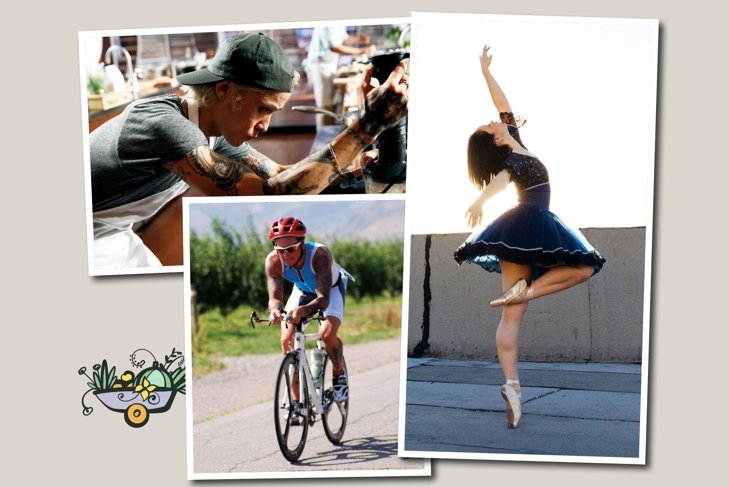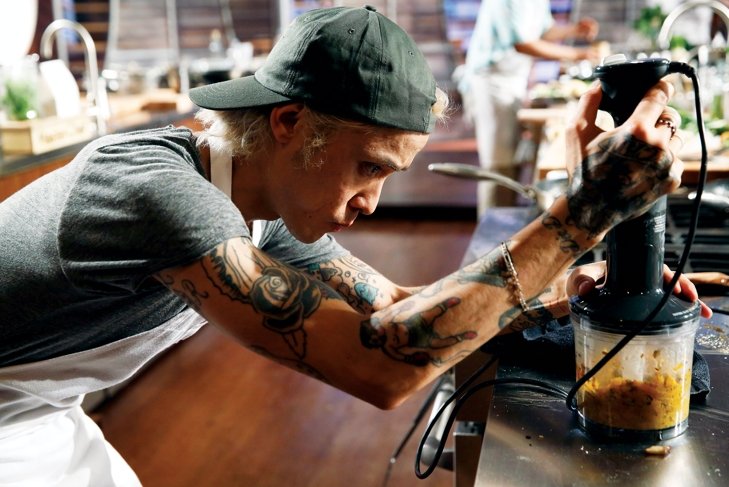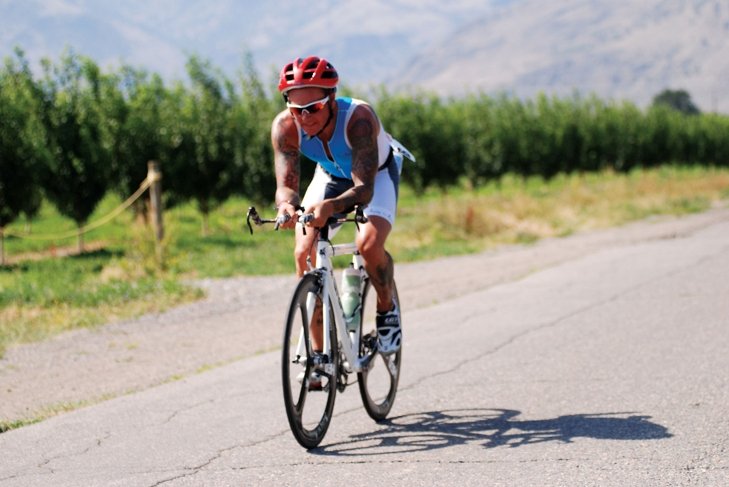
Being vegan isn’t just about what’s on our plates. These three inspirational men and women share their stories of how eating more plants liberated them from drug addictions, breast tumours, and the mainstream way of seeing the world.
For some, it’s just a meal. For others, it’s a way of life. From a former drug addict to a MasterChef, these men and women have discovered the connection between a plant-based diet and a life of doing good and chasing their dreams.
The vegan kitchen master

You might recognize Dino Luciano from the latest season of Gordon Ramsay’s MasterChef reality TV show.
“My mother watches the show, and I always wanted to be on a show my mother watches,” laughs Luciano. “I applied as a joke. But then they wrote back.”
He was invited to submit a dish that best represents himself. “I brought a vegan lasagna to the tryouts,” he says. “They couldn’t believe it was vegan. That’s one of the biggest compliments I’ve ever gotten. There were 80 finalists, then 40, then 20 … then, you know.”
Just a few hours before Luciano and I chatted, he was crowned the newest champion of the MasterChef title. This makes him the show’s first vegan winner.
“I’ve been vegetarian for a while, and vegan for five years,” he says. “It was impossible growing up in a meat-based Sicilian family. Everything was spaghetti and meatballs!”
His journey has come full circle, though. Both of his parents recently made the diet switch. “My dad has high blood pressure, and it’s lower now,” says Luciano. “He had gout, and now he doesn’t have pain.”
Luciano says he loves the vegan culinary challenge. “I’m trying to bridge the gap between vegans and non-vegans,” he says. “I want to bring alternatives that taste better than meat.”
He once made shrimp out of cauliflower. “It’s all about how you marinate it, how you bread it,” he said. “It actually tastes better than shrimp.”
While each of us might not be able to whip together a MasterChef-level miracle like cauliflower shrimp, there’s one thing these three inspirational vegans have in common in their advice to us: try a few more plants a little more often.
Stock your kitchen like Dino’s
“Garlic makes everything better,” says Luciano. “Cumin gives the flavour of meat. And if you like cheese, get nutritional yeast. That’s the holy grail.”
Finish lines instead of cocaine lines

Todd Crandell just finished running his 44th Half Ironman, but you can’t hear a hint of exhaustion in his voice. “I’m 50 and I just had one of the best finish times I’ve had in years,” says Crandell. “I owe it to how I changed my nutrition.”
Crandell wasn’t always focused on nutrition. He spent 13 years in the trenches of alcoholism and drug addiction. After his third arrest, he decided it was time to take back control of his life.
“I’ve had two life-changing moments: When I became sober, and when I embraced the vegan lifestyle,” he tells me. “They’re things I’m now able to use to help others.”
Crandell runs the nonprofit Racing for Recovery. “We sustain sobriety through a balanced holistic lifestyle,” he explains. “When people want to get sober, I encourage them to look at it as spiritual, emotional, and nutritional. Nutrition is a big factor in helping me to sustain my sobriety.”
“I don’t like to label myself as a vegan,” says Crandell. “I just say I changed my nutrition because I care about animals, our environment, and my body.
“There are three words that I’ve lived by since my sobriety: empathy, humility, and gratitude. Becoming vegan, I’ve added compassion in there. It’s made me a better person and opened my eyes to new ways of embracing life.”
Dancing to the “beet” of her own drum
 Agnes Muljadi, or @artsyagnes as her legion of Instagram fans call her, squeezes lemon into her water. It’s part of this vegan ballerina’s morning ritual alongside stretching, meditation, and homemade green juice.
Agnes Muljadi, or @artsyagnes as her legion of Instagram fans call her, squeezes lemon into her water. It’s part of this vegan ballerina’s morning ritual alongside stretching, meditation, and homemade green juice.
While Muljadi is now an outspoken advocate for the plant-based lifestyle, she didn’t have a choice at first.
“Four years ago I discovered a lump on my breast,” she recounts. It was benign. Her doctor said not to worry unless the tumour grew. And it grew. And it kept growing. Doctors recommended surgery, but Muljadi wanted to know what the underlying cause was.
After seeing multiple doctors, Muljadi was referred to a naturopath. The naturopath looked at her medical files, looked at Muljadi and said, “You have to become vegan yesterday.”
Muljadi had an extreme hormone imbalance. According to the naturopath, animal products are a driving factor for many women. “She said to me, ‘You don’t have time, you need to stop eating them immediately,’” recalls Muljadi.
“The first few weeks were tough, but after two weeks my body changed and my palate changed,” she says. “I have more energy now. I used to get sick a lot, and now I don’t. I used to have the worst skin ever, and now my skin is really good.”
Muljadi’s transformation wasn’t just in her body. “It was the weirdest thing, I felt like becoming vegan also affected me emotionally,” she says.
“At first I saw veganism as a diet,” explains Muljadi. “After switching, I started to learn the sustainability aspect. For example, I started looking at clothes. Who made my clothes? What kind of life did they have?”
“Vegan equals sustainable equals ethical,” she says. After becoming vegan, Muljadi cut her closet back to just 20 items.
Every day, Muljadi shares this message of sustainability on social media. “I was given a platform to educate people to make the world a little bit better,” she says. “When you spend your dollars on food or whatever, you’re voting for the kind of world you want to see. I hope it’s good for people, animals, and the environment.”
